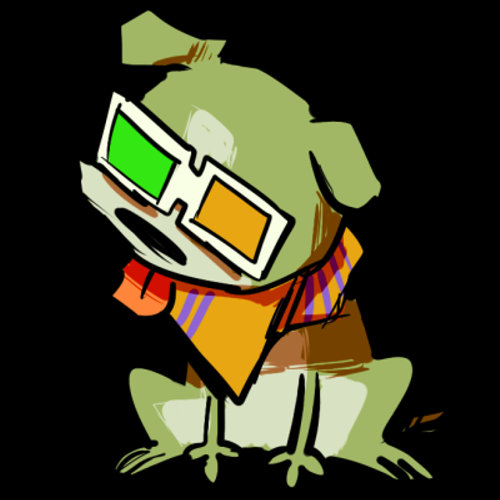Handwriting Question
Hello! I'm fairly new to this whole forum thing, but I'm a little confused about handwriting.
For most of my off-and-on studying, I've been copying and practicing Kanji based on the keyboard font. Is this alright? Honestly so long as my handwriting's legible I'm not too picky, but I've heard that you shouldn't do that and should instead learn the handwritten-style font. Does it really matter? If it does, are there any good sources for me to start making my handwriting look more natural?
For most of my off-and-on studying, I've been copying and practicing Kanji based on the keyboard font. Is this alright? Honestly so long as my handwriting's legible I'm not too picky, but I've heard that you shouldn't do that and should instead learn the handwritten-style font. Does it really matter? If it does, are there any good sources for me to start making my handwriting look more natural?
posted by Cinnatoast November 10, 2017 at 9:30am
Comments 6
 armerala November 10, 2017 at 11:36amIt doesn't seem like such a big deal, especially if you were raised using the roman alphabet, but you really should be learning how to write them properly. Each of the lines should be drawn in the right direction and in the right order. Stroke order matters a lot more in Japanese than it does for the roman alphabet.
armerala November 10, 2017 at 11:36amIt doesn't seem like such a big deal, especially if you were raised using the roman alphabet, but you really should be learning how to write them properly. Each of the lines should be drawn in the right direction and in the right order. Stroke order matters a lot more in Japanese than it does for the roman alphabet.
There's a lot of threads about this online, a quick search for "importance of stroke order in Japanese" will yield more than enough results, but I'll just summarize them.
Here's a short excerpt from Tae Kim's grammar guide:
"the important thing to remember is that the stroke order and direction of the strokes matter. There, I underlined, italicized, bolded, and highlighted it to boot. Trust me, you’ll eventually find out why when you read other people’s hasty notes that are nothing more than chicken scrawls. The only thing that will help you is that everybody writes in the same order and so the “flow” of the characters is fairly consistent."
So, in general, if you're writing with improper stroke order, you're forced to write very slowly to maintain legibility for most people, which isn't efficient. And, at worst, especially when you write more complex kanji, the character can become straight-up illegible if you use the wrong stroke order.
Second, it's more of a, you-might-as-well situation. If you're going to learn to write by hand, you might as well do it correctly. You've got to learn the character anyway, so take the extra bit of time to do stroke order as well. Certain stroke orders are repeated very heavily across all characters, so it's actually not a particularly difficult task.
Anyway, that's my two cents, hope that helps a bit :) armerala November 10, 2017 at 11:39amOh, and, as a side note, if you try to draw the kanji in an electronic dictionary to look it up, the dictionary won't recognize the character if you use the wrong stroke order
armerala November 10, 2017 at 11:39amOh, and, as a side note, if you try to draw the kanji in an electronic dictionary to look it up, the dictionary won't recognize the character if you use the wrong stroke order- Cinnatoast November 11, 2017 at 5:00amThanks so much! The strokes are definitely tricky, especially for bigger characters like 魔法 or the infamous 薔薇. I'm glad the font doesn't super matter though, I thought all that practice would be chucked out the window.
- Hutreb November 11, 2017 at 5:14amYou wouldn't want to write like that. Trust me. I used to write 人 in the computer font, and also in wrong order. It looked weird and unnatural, and I had to write it very slowly or it would just end up like this: Λ . When I learned that computer-kanji and handwritten lkanji look different, and that you shouldn't write like how you see on the screen, I decided to learn to write the "correct" way. Now I can write many things fastly without them ending up as weird scribbles. Is it easy to learn and remember to write the correct way. Nope. But it's worth it.
- Cinnatoast November 11, 2017 at 7:07amOoh... good point. I didn't realize how clunky and messy my words looked when I quickly jotted them down. Oh well, nothing worth doing is easy.
 miharusshi November 12, 2017 at 5:14pmGood points raised above. I have to add mine as well. You'll notice this when you have practiced writing kanji a lot that, when you encounter an entirely new kanji/vocab, there's kind of a pattern you can figure out without having to look up the stroke order. From the many hours of practice and immersion, you can sort of the stroke order of new words/kanji, like 80% of the time.
miharusshi November 12, 2017 at 5:14pmGood points raised above. I have to add mine as well. You'll notice this when you have practiced writing kanji a lot that, when you encounter an entirely new kanji/vocab, there's kind of a pattern you can figure out without having to look up the stroke order. From the many hours of practice and immersion, you can sort of the stroke order of new words/kanji, like 80% of the time.


